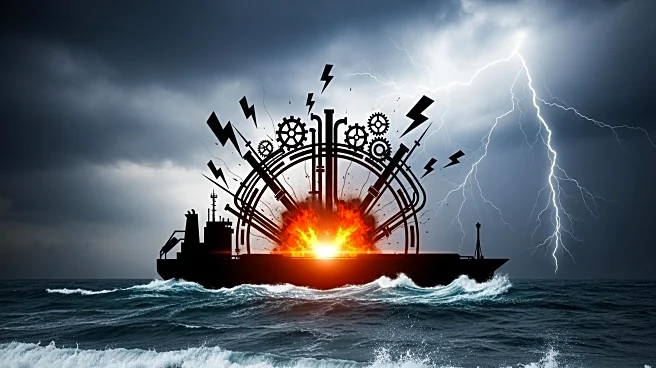What is the story about?
What's Happening?
The European Union has unveiled its 19th package of sanctions against Russia, focusing on energy imports and maritime activities. The sanctions include a ban on Russian LNG imports and restrictions on 118 additional vessels from the shadow fleet, bringing the total to 560 vessels under sanction. The EU aims to increase pressure on Russia due to its actions against Ukraine, including drone and missile attacks. The sanctions also target financial institutions and crypto platforms aiding in sanction evasion. The EU's measures align with G7 partners and are expected to significantly impact Russia's economy, which has already seen a 90% drop in oil revenues.
Why It's Important?
These sanctions represent a significant escalation in the EU's efforts to curtail Russia's economic capabilities and influence. By targeting energy imports and maritime activities, the EU aims to weaken Russia's financial stability and reduce its ability to fund military operations. The sanctions could lead to increased tensions between Russia and the EU, affecting global energy markets and international relations. Countries involved in trade with Russia, including China, may face economic repercussions due to the expanded sanctions. The EU's actions also reflect a broader international consensus against Russia's aggression in Ukraine.
What's Next?
The sanctions package requires full approval from EU member states, and further discussions are expected at the upcoming United Nations General Assembly. The EU will continue to monitor Russia's compliance and may introduce additional measures if necessary. International partners, including Australia and the UK, are also expanding their sanctions, indicating a coordinated global effort. The impact on global energy markets and diplomatic relations will be closely watched, with potential shifts in alliances and trade patterns.















